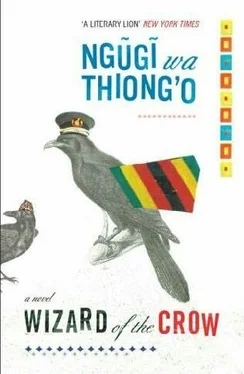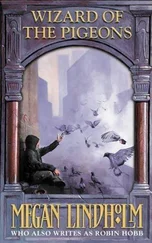Why were these other women acting out of character? How could they be so oblivious to his might? Wasn’t Bachael a shining example of what he could do to them?
Vengeance is mine, sayeth the Lord, and was he not the Lord of all Aburlrian women? Yet no matter how hard he considered the matter, he remained unsure as to what to do or where or with whom to start the vengeance like that which he had shown Bachael. Unable to act, his torturous thoughts always returned to the treacherous drama at Eldares in which the women shamed the nation before the eyes of foreign dignitaries and, worse still, in front of the Global Bank missionaries.
For days on end, after the drama at Eldares, the Buler kept to himself, trapped in secrecy. Terrified by what his silence might mean for his future, every minister preoccupied himself with working out strategies for salvation. Some tried calling the State House under one pretext or another, but the Ruler refused to take their calls. Sikiokuu and Machokali were the most affected, and their troubled souls were reflected in Sikiokuu’s drooping ears and in Machokali’s lifeless eyes.
Machokali’s woes worsened when one day the Global Bank mission announced that they would be returning to New York. Aware that his reputation had seriously suffered as a result of the recent drama at Eldares and that his hope for redemption lay in their continued presence, Machokali begged the missionaries not to go until they had taken formal leave of the Ruler. They agreed to postpone their departure for a few days, but still Machokali was unable to arrange a get-together at the State House and was too embarrassed to ask them for a further postponement. He blamed a general indisposition for the Ruler’s unavailability. They understood the minister’s predicament, and, to ease his mind, they said he should not worry, that if he or the Ruler ever happened to be in New York they were most welcome to drop by the Bank for further talks. As politic as they thought they were being, they were taken aback when Machokali begged them to put the invitation in writing, which they did, also confirming their flight to New York a few days later.
Machokali clung to the letter as if it were a talisman and looked forward to the day that he would present it to the Ruler. Unlike his archrival, at least he had something in hand, he consoled himself.
But he was mistaken about his archrival. In the wake of Kaniürü’s good intelligence, Sikiokuu had started feeling confident that he could weather the storm. Nyawlra might still be at large, but Sikiokuu was no longer completely in the dark about the Movement for the Voice of the People. His morale was high. Vinjinia was Tajirika’s wife. Nyawlra was Tajirika’s employee. Tajirika got the powerful position of chairman of Marching to Heaven through Machokali. Vinjinia’s guilt would connect Machokali to the Movement for the Voice of the People and probably to the women who had shamed the nation.
The Ruler’s continued taciturnity worked in Sikiokuu’s favor, for it gave him time to work out his next move in the game that he and Machokali had been playing to see which was stronger, the Ears or the Eyes of the State.
It is said that the Ruler stayed closeted in the State House for seven days, seven hours, seven minutes, and seven seconds before calling an emergency session of his cabinet. He had yet to come up with a satisfactory course of action in dealing with the women, whoever they were; meantime, he just wanted a chance to vent his anger at a less elusive target: his ministers.
The cabinet ministers jumped to attention like terrified cadets at the entrance of their commanding officer. The Ruler sat down and gestured for them to do the same. He then let his eyes wander from one side of the table to the other, resting briefly on each face before finally dwelling on Sikiokuu. The Ruler did not have to utter a word for Sikiokuu to know that he was being asked a question.
“Your Mightiness, you are father to us all, and I, as a dutiful son, know that you are asking me to say something about the whole women thing. In my humble opinion, the people who are best placed to explain the fiasco are those who persuaded us that the queues should be interpreted as a mania in support of Marching to Heaven. In light of what happened, they might want to enlighten us as to what they really intended.”
The Ruler glanced at Machokali. Big Ben Mambo, Minister of Information, quickly followed suit. He was like that: always alert to see who, Machokali or Sikiokuu, would eventually come out on top in order to side with the victor. Machokali seized the challenge.
“Ruler who art our father here on earth, the English who gave us civilization, freedom, and parliamentary democracy taught us the doctrine that cabinet decisions are collectively binding. If a given minister does not agree with a collective decision, then he should resign his post. At our last cabinet meeting I did not hear Sikiokuu say that he was going to resign his post on account of his principled opposition to the mania of the queues. Instead he offered to dispatch motorcycle riders to the north, south, east, west, and center to advance the cause. They left weeks ago. By the way, where are their reports?”
Sikiokuu hardly wanted his five riders and their mission to become the dominant subject of discussion, and he considered distracting attention from it by accusing Machokali of talking as if the British still ruled Aburiria but thought the better of it, recalling how the Ruler had reacted when Sikiokuu said something similar in relations to the Global Bank. He was confident about what he had up his sleeve and was waiting for the right moment to pounce, so he just sat quietly like a cat awaiting its prey, allowing Machokali to continue without interruption.
“If truth be told, without adding or subtracting A or B,” Machokali pressed on, “we must admit that except for the one unfortunate occurrence, Eldares has never had so well attended a gathering. All Eldares was practically there.”
Sikiokuu saw his opening:
“Yes, but what was the outcome? How do we know that the amassing of the crowd was not part of their plan? Who was the mastermind of this woman thing?”
One of the consequences of the event was the effect of the words woman and women on the Ruler; at their mention the Ruler’s heart beat faster; he became visibly agitated. Now everybody noticed the look he gave Sikiokuu, as if demanding to know what pleasure the speaker was getting out of constantly repeating the accursed word.
“He is evading responsibility for the five riders,” Machokali complained. “As to who is behind the event, he should ask himself. Everyone knows that it is the so-called Movement for the Voice of the People. Toy snakes were again scattered all over the field. What I want to know is this: what has Sikiokuu done to ensure the arrest of these criminals?”
With melodramatic slowness, Sikiokuu rose and intoned: “Your Holy Fatherness, to eradicate an underground movement is not as easy as some people might think. These renegades are cowards, meeting under the cover of darkness. They dare not into the light because they are not men at all. They are women, cowards. I am very happy to report that we have identified someone high up in the movement. Her name is Nyawlra.”
“Is she in custody?” the Ruler blurted.
“No, not quite-she slipped through our fingers.”
“Oooh,” other cabinet ministers sighed, disappointed by the anticlimax.
“But we know where she works,” Sikiokuu hastened to add, firing their curiosity. “We are keeping round-the-clock surveillance of the premises to make sure that her employers are not hiding her.”
“Why don’t you arrest the whole lot? Employees, employers, whatever?” the Ruler asked.
Читать дальше












